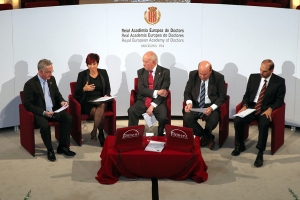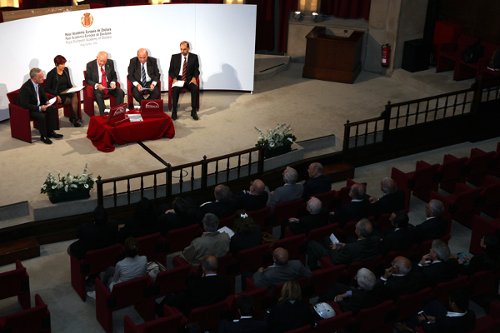 The family business experts gathered by the Royal European Academy of Doctors-Barcelona 1914 (RAED) and IESE on 11 May in Barcelona in the academic session “Mejora de la viabilidad de las empresas familiares” (Improving the viability of family businesses) agreed to highlight the need for these companies to have a diagnosis and a protocol of anticipated action to solve any crisis of the model before suffering its consequences.
The family business experts gathered by the Royal European Academy of Doctors-Barcelona 1914 (RAED) and IESE on 11 May in Barcelona in the academic session “Mejora de la viabilidad de las empresas familiares” (Improving the viability of family businesses) agreed to highlight the need for these companies to have a diagnosis and a protocol of anticipated action to solve any crisis of the model before suffering its consequences. For Ricardo Aparicio, a professor at the PanAmerican University of Mexico, “in the face of a crisis of disunity it’s important for families to anticipate possible allies in a timely manner that can help societies break down. Which have high costs and must be avoided”.
For Ricardo Aparicio, a professor at the PanAmerican University of Mexico, “in the face of a crisis of disunity it’s important for families to anticipate possible allies in a timely manner that can help societies break down. Which have high costs and must be avoided”.